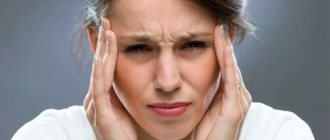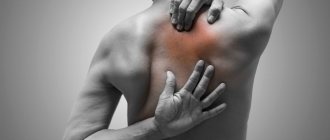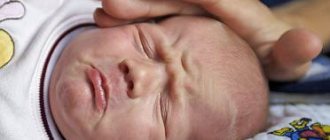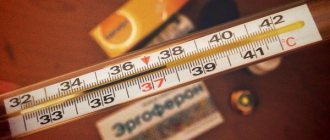These are organic somatic diseases or diseases with a known pathophysiological disorder, the development and course of which is associated with the influence of psychological factors. The use of this term to designate somatoform, somatized disorders, and especially personality reactions to illness, as A.B. Smulevich does, is quite controversial. Firstly, because somatoform disorders can be those that only imitate somatic pathology. Secondly, due to the fact that somatization is considered a mental disorder in the clinical structure of which there is a clinically significant imbalance towards the predominance of somatic symptoms. Thirdly, for the reason that the individual’s reaction to illness, or, more precisely, to how this individual perceives his illness, is manifested not only by psychosomatic symptoms, moreover, it is not these symptoms that determine the clinical nature of nosogeny.
Hypochondria, physical complaints in affective disorders and physical pathology in addiction diseases are not psychosomatic diseases.
Insomnia “became” the first psychosomatic disorder, then ulcerative colitis, peptic ulcers, migraine headaches, bronchial asthma, rheumatoid arthritis, and later some other diseases were classified as psychosomatic pathologies. The nature of psychosomatic illnesses is completely incomprehensible and unknowable if, following Descartes, we divide the body and soul as some absolute entities independent of one another. K. Jaspers believes that “the border here is quite shaky.” Nevertheless, he is in no hurry to agree with von Weizsäcker, who strives to find a psychologically understandable element in any disease.
An explanatory hypothesis could be that psychophysiological structures somehow influence the activity of internal organs. It is still not clear what exactly traumatic situations contribute to the development of psychosomatic diseases. It is believed that such development is favored by high and prolonged, throughout the year, stress load. There is a hypothesis that different and especially alexithymic individuals are prone to different psychosomatic diseases, as well as a hypothesis that different diseases are caused by different conflicts. Some researchers are of the opinion that diseases are caused by nonspecific generalized anxiety that accompanies conflicts of various types. The link between stress and psychosomatic illness is believed to be the autonomic nervous system and the endocrine system (anterior pituitary-hypothalamic-adrenal axis). Let us consider psychosomatic diseases according to the somatic systems that are affected.
The cardiovascular system
1. Coronary artery disease. Causes myocardial ischemia. It is characterized by episodic subcardial pain (angina attacks), discomfort, and pressure. Coronary insufficiency in a significant proportion of cases leads to the development of myocardial infarction. F. Dunbar described the personality of coronary patients as aggressive-compulsive - with the desire to work hard and gain authority. Later Friedman and
Rosenman identified Type A and Type B personalities, with Type A being more associated with the development of coronary heart disease. Type A personalities are action-oriented and hostilely competitive. Type B personalities, on the other hand, are calm, less aggressive, and fight less hard for their goals. In personality type A, the amount of low-density lipoprotein, serum cholesterol, triglycerides and 17-hydroxycorticosteroids is increased, which contributes to the development of coronary heart disease. When treating the disease, tranquilizers (for example, diazepam) are prescribed to ease psychological disturbances. For pain, narcotic analgesics (for example, morphine) are used. Psychotherapy is needed to maintain morale, confidence in recovery, and reduce stress, compulsion and tension.
2. Severe hypertension . Arterial hypertension is an increase in blood pressure to 160/65 or higher. Common (eg, 20% of American adults). Persons with high blood pressure are quite adequate in appearance. They complain a lot, are compulsive, and can accumulate rage, although they do not openly express anger. The disease is promoted by genetic predisposition; the tendency to suppress and repress anger translates it into illness. In addition to antihypertensive drugs (capoten, capazid, enalapril, ednit, diraton, cardaflex, etc.), supportive and behavioral psychotherapy (for example, meditation, relaxation, bioreinforcement) is successfully used in treatment.
3. Heart failure. A decrease in the volume of blood ejected by the heart reduces tissue blood flow, leading to stagnation of blood in both circulation circles. Conflicts and mental trauma often influence the onset or exacerbation of the disease. Psychotherapy therefore plays an important role in the treatment of the disease.
4. Vasomotor (vasodepressive) syncope. As a result of a decrease in sympathoadrenal and increase in vagoinsular activity, the volume of ejected blood decreases, due to vasodilation, peripheral vascular resistance decreases, and bradycardia develops. Poor blood supply to the brain and hypoxia cause fainting. All these processes seem to be triggered by fright or acute fear. Psychotherapy is needed: determining the cause of mental trauma and increasing resistance to it. In case of orthostatic collapse, the patient is recommended to slowly move to a standing position; During fainting, the patient's legs should be elevated.
5. Cardiac arrhythmias. Life-threatening arrhythmias (ventricular tachycardia, ventricular fibrillation), sinus tachycardia, ST and T wave changes, ventricular ectopy, increased plasma catecholamines and free fatty acid concentrations may be associated with emotional trauma. Emotional arrhythmia requires psychotherapy and beta blockers.
| | Arrhythmia can be one of the many symptoms of a panic attack |
6. Psychogenic cardiac complaints in persons who do not suffer from heart disease. We are talking about cardiophobia and even delusions of heart disease, which refers to an anxiety disorder; in ICD-10 it is mentioned among the manifestations of somatoform autonomic dysfunction as Da Costa syndrome (G45.30). This is also a syndrome of "neurocirculatory asthenia", described by Da Costa under the name "irritable heart". There are 20 other names for this poorly defined disorder. The disease begins at the age of 12–22 years, but also occurs in middle age, and is twice as common in women. It runs chronically with periodic exacerbations.
Diagnostic criteria: 1) respiratory complaints such as painful breathing, inability to take a deep breath, suffocation and shortness of breath; 2) palpitations, chest pain or discomfort; 3) nervousness, dizziness, weakness or discomfort in crowds; 4) excessive fatigue or limitation of activity and 5) excessive sweating, insomnia and irritability. If phobias predominate in the manifestations of the disease, psychotherapy is effective in identifying hostility, unacceptable sexual impulses, addiction, guilt, and fear of death. Physical impact programs (learning proper breathing, for example) are combined with group psychotherapy. For significant anxiety, tranquilizers (diazepam) are prescribed, for asthenia - nootropics, for vegetative dystonia - anaprilin.
Chronic headache from a psychosomatic point of view
Many people are skeptical about the problem of chronic pain syndrome, and this is understandable. Although every person experiences it at least once in their life, constant headaches are not common to everyone.
Pain in the head area can be caused by various factors - from sudden changes in blood pressure to inflammatory processes or intoxication. There are many reasons, and the location of the pain is very important. Even a change in weather affects the appearance of pain in the brain - a factor here is a change in air pressure. But there is a type of pain syndrome that, at first glance, has no reason. There is no particular localization, the head just “constantly hurts.” This is the type of pain we will talk about.
Pain and psychology
As a rule, when visiting a doctor, the latter cannot understand what is wrong with the patient, since all the data suggests that “everything is fine.” Usually they complain about osteochondrosis, inflammation or vascular disease. But neither massage nor anti-inflammatory medications help. The thing is that headaches are of a different nature.
However, there is a second option - hypochondria. What distinguishes psychosomatic headaches from hypochondria is that the sensations are real. For hypochondriacs, fear and pain are imaginary. What they have in common is that both cannot be diagnosed (“everything is fine,” the tests say). Treatment, in general, for both of them is based on psychotherapy. Another difference is that hypochondriacs are not helped by antidepressants, while patients with psychosomatic pain are partially helped because the brain “inspires” such sensations. But the opposite effect is also possible - self-hypnosis is a great force.
With a psychosomatic illness, it is important to look inside yourself and understand what is gnawing at the patient (yes, an illness of consciousness is the same disease as an illness of the body). This may be a feeling of guilt that is lodged deep inside, or non-acceptance of the situation, or a personality conflict. There are cases when chronic headaches disappeared on their own due to certain events occurring in life (people did not in any way connect the circumstances with the disappearance of pain). The capabilities of our brain, although limited, we often do not understand them (this mainly concerns the subconscious). In addition, the brain can literally understand phrases such as “one big headache”, “I can’t stomach it”, etc.
In fact, these are not all the reasons that cause psychosomatic diseases.
Pain and information overload
“The scourge of our time” is stress. It is connected, first of all, with the gifts that life brings in the modern world. This is convenience, comfort, ease of communication and opportunities for intellectual development. The other side of the coin is that a person moves less, has problems with sleep, nutrition, and is constantly in the location of electromagnetic fields. And the amount of information that he receives per day is tens of times greater than the amount that a person previously received in a whole year. All this is the cause of constant stress and overstrain, and first of all, the nervous system wears out, responding to chronic headaches - the reaction that it can present to us. The same can happen with the hormonal and immune systems.
Of course, our body and its systems have the ability to adapt to changing conditions, but so far we have a problem with an undeveloped worldview that would allow us to maintain the body’s capabilities even in an aggressive environment. You need to give your brain a rest, avoiding overexertion.
Instead of a conclusion
Having discovered a headache, you need to slow down a little, lag behind the frantic pace of life, and understand what is causing the torment.
Factors, as already noted, can be different - from self-punishment or suggestion, to childhood trauma or dissatisfaction with the fact that the desired success has not been achieved - a person may not even be aware of the presence of these problems. Author: K.M.N., Academician of the Russian Academy of Medical Sciences M.A. Bobyr
Respiratory system
1. Bronchial asthma. A disease of the bronchial airways that respond to various stimuli by narrowing the bronchi, excessive secretion and swelling. Asthmatics are considered to have an increased need for dependence. F. Alexander believes that the psychodynamic conflict factor is a strong unconscious need for protection and affection from the mother or a person replacing her. If support does not appear when needed, an asthma attack develops. Some patients recover if they are separated from their mother ("parentectomy"). Various methods of psychotherapy are used. Asthmatics should be treated jointly by internists, allergists and psychiatrists.
2. Hay fever. It occurs when strong psychological factors are combined with allergic elements. One factor may dominate over others, and they may also alternate in importance. Treatment combines psychiatric, somatic and allergic factors.
3. Hyperventilation syndrome. Due to one or another emotional state, patients breathe deeply and quickly for several minutes, then, due to cerebral vasoconstriction and respiratory alkalosis, dizziness occurs and fainting occurs. There may also be paresthesia and carpopedal spasm. It is important to exclude conditions such as epileptic and hysterical seizures, vasovagal or hypoglycemic attacks, myocardial infarction, asthma attacks, porphyria, Meniere's disease, pheochromacytoma, as well as anxiety attacks, panic reactions, psychotic episodes, and personality disorders. Treatment boils down to retraining breathing skills in situations that provoke an attack, as well as avoiding such situations. The attack can be stopped if the patient breathes into a paper bag.
Digestive system
1. Peptic ulcer. It is characterized by ulceration of the membrane of the stomach and duodenum, reaching the muscle layer, in areas accessible to gastric juice and pepsin. The development of the disease, according to F. Alexander, is associated with the frustration of the expressed need for dependence. This unconscious conflict develops into an intense oral-receptive need for dependence, care and affection, which in turn leads to unconscious regressive hunger or anger. The resulting vagal hyperactivation leads to hypersecretion of gastric juice, which, in the case of hereditary readiness for the disease or gastritis, gives rise to the disease. According to a non-specific theory, stress and anxiety in any conflict and in any personality type cause hyperactivity of the stomach and hypersecretion of pepsin, and then ulcers (similar to how electrical injuries cause ulcers in dogs). Drug treatment (cimetidine, ranitidine, famotidine, nizatidine, etc.), a special diet is combined with psychotherapy aimed at conflicts associated with the patient’s addiction; Bioreinforcement and relaxation can be useful.
2. Ulcerative colitis. This is a chronic inflammatory ulceration of the large intestine with bloody diarrhea, sometimes with regional inflammation of the intestine and indigestion syndrome. Patients are dominated by compulsive personality traits: neatness, a penchant for order and punctuality, shyness and restraint in expressions of anger, hyperintellectuality. F. Alexander considers the patient’s inability to fulfill obligations towards the main figure of his addiction to be the key point in the development of the disease. This stimulates oral aggressive sensations, causing feelings of guilt and anxiety. “Gifting” bloody diarrhea leads to recovery. They also point to a pathological mother-child relationship, which gives rise to feelings of “hopelessness-uselessness” and “a complex of refusing - giving up.” There is also such a theory: nonspecific stresses of many types can cause ulcerative colitis. Drug treatment includes the prescription of anticholinergic and antidiarrheal drugs, in severe cases - prednisolone; Preparations with bismuth help well against diarrhea. In the acute phase, supportive psychotherapy is indicated; for chronic manifestations, more interpretative psychotherapy is indicated.
"Big Bosses"
Causes of headaches: high ambitions combined with a painful perception of criticism and the need for constant recognition and approval. If such a person also holds a high position, then this is accompanied by constant stress and a sense of responsibility.
Solution: try to express emotions when they arise. Of course, you will have to think about how this does not affect your subordinates, but at least at home you don’t have to continue to play the role of “iron man.” Find a time and place where you allow yourself to express negative or positive emotions. If you want to cry, cry. Psychologists say that timely crying is the best remedy for stress.
If you want to laugh, laugh. Remember, not a single deeply hidden emotion goes anywhere. It comes back with physical pain, depression...
It is within you that the “golden key” is laid, which opens the door to an independent solution to any problem that threatens to turn into a headache.
Weight disorders
1. Obesity (body weight 20% higher than standard). There is a hereditary predisposition to obesity, and factors of early development in childhood are also important. This means that in obese children the number of cortical cells increases (hyperplastic obesity), while obesity in adults is the result of hypertrophic obesity (an increase in the size of fat cells). Psychological factors are important for hyperphagic obesity (overeating). Among the psychodynamic factors of overeating are oral fixation, oral regression and an overvalued attitude towards food; There is bulimia associated with binge drinking. The development of obesity can be facilitated by neglect of one's appearance and poor nutrition in early childhood. Treatment: Diet, as well as emotional support and special behaviors to combat anxiety and depression.
2. Anorexia nervosa. Occurs in 0.37% per 100 thousand population per year, more often during puberty; boys make up 4–6% of all patients with anorexia nervosa. Early psychodynamic theory stated that anorexics deny the desire to become pregnant by fasting because they imagine that they can become pregnant through the mouth. Another theory posits a dependent reassurance relationship between a warm but passive father and guilt for aggression towards an ambivalently viewed mother. Other authors describe body schema disorder (denial of exhaustion), self-perception disorder (unwillingness or refusal to acknowledge exhaustion, weakness, hunger), and feelings of failure due to false learned experiences. There is also a theory according to which the disease is a phobic reaction of avoiding food due to sexual and social stress during puberty; fasting reduces sexual interest, which, in turn, leads to even greater hunger strike.
Diagnostic criteria: 1) failure to maintain body weight at the minimum normal level (up to 15% of normal) and inability to achieve the expected increase in body weight during the growth period; 2) strong fear of weight gain even during periods of obvious exhaustion; 3) feeling “fat”, “too fat” even when exhausted; 4) in women, the absence of at least three consecutive menstrual cycles that were expected (a woman is considered amenorrheic if menstruation occurs only under the influence of an injected hormone, such as estrogen). During treatment, it is very important to monitor how the patient takes food, water, as well as natural waste.
It is necessary to ensure that the patient does not take anorectics, laxatives, diuretics, does not induce vomiting, and that he eats and does not hide food. It is necessary to eliminate dehydration and electrolyte imbalance. Behavioral psychotherapy contains many positive reinforcements and privileges, helping to reinforce external motivation to take food and liquids. Among the medications, aminazine is recommended, and more recently, antidepressants, in particular amitriptyline. Cyproheptadine is also used, and sometimes ECT (especially in the presence of a pronounced depressive component). Family psychotherapy is used as a means of studying intrafamily relationships and eliminating the patient’s “secondary satisfaction” from his disorder.
Why does my head hurt?
The block of the 7th chakra, the failure of the Holy Spirit, the Daily Bread, to flow into a person through the head, is pride-selfishness. Like, without God and grace, I can rule this world. You won’t even be able to steer yourself without the grace of God, that’s what illnesses tell us. And we will talk about this below, how to be constantly in the Holy Spirit, without wasting time on worries and false fears.
- Dehydration of the brain. The body signals pain, lack of water in the organ. If you have a headache, dehydration may be the main cause. Drink 2 liters of clean water during the day, watch Emoto Massaru’s films about living and dead water and begin to fill your body with living water, putting feelings of love and gratitude into it.
- Spinal curvature is one of the main causes of headaches. All the people who came to me with this problem, the headache went away as soon as we put the cervical vertebrae in place. At this moment, cerebral circulation normalizes, and spasms in the head go away.
- Categorical - the field near the head shifts to the right or left, and the head begins to hurt. A categorical person looks at the world from his own bell tower; he also has a wrong opinion. But I need to admit to myself that my opinion is correct, and no longer be categorical. Categoricalism is a war with God, it is a rejection of oneself and people, creation as a whole. Let go of your rightness and do not sit on the letter of the law, because you are better off without you than by you.
- The one who destroys everyone around with his head has a headache. In his thoughts he walks around and kills everyone. It’s hard to even stand next to such a person; your head starts to hurt. Stand next to the grandmothers at the entrance and you will understand what I’m talking about.
We will now analyze the mechanism of closing a person from the will of the Divine and the reason for the block of the 7th center.
Blocking of the highest center, the 7th chakra - a person does not understand and does not realize that his health and life in general depend entirely on the Holy Spirit. A person goes into his thinking, imagination, the world of fantasies, the world of mental concepts, instead of directly acquiring the Holy Spirit. Comprehend the world through sensations, not thoughts. Ego, pride, mental fantasies and self-justifications are the program that separates a person from the Spirit of God. Once you throw away all thoughts, ideas, knowledge, and enter into feelings, the door to the world of the Spirit opens. And then, already cultivating in himself humility, meekness, kindness and mercy, a person becomes like God in his original beauty and is deified. While you think and live in thoughts, the Holy Spirit does not come into you; as soon as you begin to directly feel the world, the Spirit immediately opens.
It is very important to understand that the Holy Spirit is always there. The Holy Spirit permeates everything, like the rays of the sun, and only the construction of the Ego, pride, separates a person, along with his body, from God, closing in on himself. We call such people closed, closed, in their own minds, cunning and crafty. The Holy Spirit is true. When lies appear, the light goes away. If you lied, you lost the Holy Spirit. The quality of truthfulness is the basis, the foundation for the Spirit of God.
People who lie are black as coals on the subtle plane; unpleasant energy emanates from them. You probably notice this every day when you interact with people. We intuitively feel who is deceitful and who is truthful and bright. Make a vow to always tell the truth, and the light will not leave you. The light of truth will disperse all the darkness of suffering, illness and suffering. After all, liars always suffer.
But what makes a person lie?
Rejection of his nature, a person sees his innate qualities, his inclinations and habits and tries to hide them by wearing masks of lies. Therefore, in Christianity, the first step to God is the acceptance of one’s sinful nature. You need to tell yourself honestly that I am: proud, arrogant, deceitful, cunning, lustful, greedy, angry, touchy, changeable, unreliable, stubborn, etc. In a word, I don’t smell very good when I lie, because I have a lot of dark, rotten qualities, and people smell them. What people are doing now is trying to hide piles of feces inside themselves.
Christ spoke about this: everyone tries to appear beautiful on the outside, but inside there is an incredible stench, which makes one feel sick.
"27. Woe to you, scribes and Pharisees, hypocrites, for you are like whitewashed tombs, which on the outside seem beautiful, but inside are full of the bones of the dead and all uncleanness;
28. So, outwardly, you seem righteous to people, but inside you are filled with hypocrisy and lawlessness.”
(Matt. 23, 23–28)
And so such a person, with an uncleaned mind, runs to his “friends” to share his stench. Am I not telling the truth? Pay close attention to how you feel after interacting with people throughout the day. Every person has a very beautiful and creative soul that is always looking for a way out to God, she remembers the Holy Spirit, she remembers the grace of the spiritual world from which she came to Earth and knows her eternal nature of bliss. And in every person there is a sinful beginning, from which there is a stench, and which we do not want to accept. But we are obliged to receive the experience of suffering, pain, blood, illness, death of the body, breakup, betrayal, betrayal, sadness and complete hopelessness, as a conscious consciousness, and it is useless to run away from it, in this life you run away from suffering - in the next you will receive it. A million births are nothing to the Universe. But as soon as we accept everything now, jump into pain, look fear and death in the face, kiss them, we become bigger, we begin to see the world through the eyes of Absolute Harmony at every moment of time.
If you are sick now, then you are not accepting something in life. Look, accept this as a fact of the manifestation of the Divine will, and suffering will disappear along with illnesses. If it exists, then God loves it. If there are maniacs and rapists, it means that God loves these sick children. When a mother gives birth to a child with a serious illness, she often loves him more than healthy ones and shows maximum service to him. Maybe God is exactly the same, loves prodigal sons more than healthy children. After all, one soul that repents brings more joy to the world of heaven than a righteous man who is proud of his righteousness. Your mind will perish if you deprive it of nourishment. Intelligence and pride are one and the same. This is selfishness, egoism, they say, I rule this world. Relax, you are not God, and even thoughts are given to you. And it’s not up to you to decide how everything will be, because you cannot make sure that there is no disease, death, old age and suffering on Earth. You can only observe with tenderness that God manifests everything from Himself and looks at everything Himself. This world is God's cinema, where He is the spectator, the screen, the electricity, the director, the actor and the roles, i.e. limitations that we call people. Everything is God, everything is light, and everything is love. As soon as you accept everything that is as a manifestation of God, at that moment the headache will leave you forever and nothing else can hurt your ego, because the ghost of the Ego will dissolve and only God will remain.
Tell yourself and realize:
- Everything is permeated by the Holy Spirit. All the will of God.
- There is no point in worrying and worrying, because God is at the helm.
- I ask the mercy of the Heavenly Father to pour out the Holy Spirit on me, and let this Spirit feed me day and night.
- I realize that I have many dark qualities, and I accept them as a given of my material, limited nature. Instead of fighting my nature, I will engage it in useful work. When a person works, at that moment he is sinless. Even the worst person can use his nature for the benefit of everyone. And even the most righteous person can lie on the couch without bringing benefit to others. There is no sin, and there is no righteousness - these are all conventions. You are who you are. If you are a demon, fulfill your demon dharma, if you are an angel or a saint, fulfill your dharma.
- Inside every demon there is a loving principle, and inside every angel there is a loving principle. Every animal has a loving side, even if it is a predator.
- Look at your nature and don't try to hide it. Just fulfill your dharma. Even demonic people can be very useful if they feel their intuition and the instructions of the teacher. And the righteous, who do not accept the teacher’s instructions, fall into the delusion of pride and begin to condemn the whole world of God and all his creations.
- Everything is Divine, you just need to see it. Don't judge - you won't be judged. You did not create this world, it is not for you to judge it. Take for granted everything that can happen to you. After all, through you, whether you like it or not, a loving principle, God himself, acts, and every moment of your life you are exactly where you need to be, even now, reading this text. God Himself works through you, relax and wave your hand to Him, He is smiling at you now.
Skeletal muscle diseases
1. Rheumatoid arthritis. It manifests itself as muscle pain due to inflammation in the joints. Patients feel stiffness, limbs seem to be tied, movements are limited. Psychological stress is hypothesized to predispose to disease; to a large extent it is associated with hereditary, allergic, and immunological factors. Drug treatment of pain and arthritis is combined with psychotherapy (instilling confidence in success, supporting during an acute attack and interpretive during the chronic phase).
2. Lower back pain. This refers to pain of a psychosomatic nature, when the spine is not changed, there is no neurological pathology, but the pain is very intense, incapacitating, and often its appearance coincides with psychological trauma or stress. Patients are demonstrative or exhibit depression and severe anxiety. The location of pain rarely follows the normal anatomical distribution of nerve endings. During treatment, aspirin and diazepam (as a muscle relaxant and anxiolytic) are used as analgesics. Physiotherapy, exercise therapy, and psychotherapy methods include relaxation, biofeedback and supportive psychotherapy aimed at the emotional trauma that caused the disease.
How to get rid of psychosomatic causes of headaches
To discover the true psychological causes of headaches, you need to face all your negative feelings and emotions. Find out which part of your personality causes cephalalgia and what it wants to show or get by it.
It is important to recognize problems, solve them, let them go, or learn to react to them differently. If there is something in your life that you are not happy with, think about how you can fix it. Very often, headaches are caused by anxious and restless thoughts, excessive worries about what is not there.
Of course, pain does not come from the thoughts themselves, but from how you react to these thoughts. You may not notice, but your body shrinks and tenses when you think bad thoughts. A spasm of cerebral vessels occurs.
On a note!
Stress is reflected by headaches. This has been known for a long time - a study confirmed this fact in 2014: the more stress a person experiences, the more susceptible they are to headaches.
That's why experts view proper handling of psychological stress as an important lever for combating headaches—or even avoiding them.
Here you also need to increase your awareness and learn to manage your thoughts. If psychosomatic headaches are caused by external circumstances, an objective assessment of the situation is necessary: is what is happening outside so important for you and is it worth worrying about so much?
But often the reasons are hidden in the field of the unconscious and it is difficult for a person to determine for himself what causes illness in his body.
Headache
Most headaches are associated with psychological stress; Stress can also negatively affect organic headaches. Psychosomatic headaches are vegetative reactions to conscious and unconscious conflicts; they are not symbolic in nature. Psychogenic refers to headaches associated with anxiety, depression, hypochondria, delirium, as well as conversion headaches of hysterics. In any case of headache, a thorough examination (CT, MRI, etc.) is necessary.
1. Migraine. This is a paroxysmal vascular headache (with or without gastrointestinal disorders). Perhaps this condition is associated with intracranial circulatory disorders. In 2/3 of patients, one of the relatives suffers from the same or similar disorder. Persons prone to pedantry and obsessions suppress their anger and are genetically predisposed to migraines. They may also develop headaches as a result of severe nonspecific emotional conflicts or stress. Migraine is best treated during the prodromal period with ergotamine and analgesics. For frequent attacks, anaprilin and phenytoin are indicated. There is evidence of the positive value of psychotherapy, which reduces the impact of conflicts and stress, and some behavioral methods (for example, biofeedback).
2. Muscle headache. It is caused by emotional stress if it entails prolonged contraction of the muscles of the head and neck, and consequently, contraction of blood vessels and ischemia. This is a dull, aching pain that often begins in the lower part of the back of the head and can spread throughout the head; there is a feeling as if the head is tightly tied with a ribbon. Sometimes it hurts to touch your head. Unlike migraine, the headache is bilateral, has no prodrome, and occurs without nausea and vomiting. More often it occurs in the evening, sometimes after the pressure associated with stress at work subsides.
If family and personal pressure equal or exceed work pressure, pain may worsen late at night, on weekends, or on vacation. Personalities of type A, conflict-ridden, and “tight as a string” are more prone to disorder. In the acute stage, they are helped by treatment with anxiolytics, muscle relaxants, massage, and warming the head and neck. For depression, antidepressants are prescribed. In terms of psychotherapy, the best method is one that teaches you to avoid or cope with tension. Some patients benefit from electromyographic feedback from the frontalis and temporalis muscles.
What to do if you have a psychosomatic headache?
Treatment of a patient with psychosomatic headaches solely with the help of analgesics is insufficient if the symptoms are based on states of external or internal tension that are inaccessible to the perception of the patient himself. Conflict processing can usually occur in short-term therapy, the effectiveness of which is often enhanced by accompanying psychopharmacological treatment.
Tension headache is an indication for a combination of psychotherapeutic conversations and all types of somatic interventions.
Chronic and fixed personal conditions respond best to group therapy methods (art therapy, psychodrama, body-oriented psychotherapy, gestalt therapy, transactional analysis); if necessary, they are supplemented with short psychotherapeutic conversations.
Patients usually try to occupy a special position in the group, begin to express their personal problems quite quickly, show signs of obsessiveness and narcissistic traits, and turn out to be very touchy.
If therapeutic measures aimed at the somatic sphere, such as intensive kinesiotherapy, functional stress relief, etc., are carried out in parallel, this can facilitate verbal group treatment, as well as group therapy.
In patients who do not want or cannot undergo psychotherapy, the method of self-monitoring of muscle tension using biofeedback is successfully used.
The key to preventing persistent stress headaches is to simply become less susceptible. The more you free yourself from the chronic need for approval from others, the better you will be able to develop, respect and understand yourself.
Skin diseases
1. Generalized itching. It is known that itching, tickling and pain are carried out along the same afferent fibers and differ only in the frequency of electrical impulses. Itchy dermatoses have many causes: scabies, lice, insect bites, urticaria, contact dermatitis, ringworm, prickly heat. Internal causes of itching can be diabetes, nephritis, gout, liver disease, thyroid disease, food allergies, Hodgkin's disease, leukemia, cancer. Itching occurs during pregnancy and in old age.
“Generalized psychogenic pruritus” is associated with emotional conflicts and is caused by repressed anger or anxiety. As individuals, patients exhibit an extraordinary need for affection. Scratching the skin seems to bring pleasure, replacing the frustrated need for affection. In addition, scratching is also a manifestation of auto-aggression.
2. Localized itching. Pruritus of the anus occurs for various reasons (helminths, irritating discharge, fungi, digestive insufficiency, drug intoxication). Upon recovery, pruritus continues, however, to “live its own life,” possibly due to inflammation. The patients suffer greatly. Research has shown that the disorder is often preceded by personality disorders and emotional disturbances. Vaginal pruritus often occurs in women with a history of sexual frustration. Scratching is seen as a symbolic form of masturbation. A thorough somatic examination is always necessary; psychologizing any disorder can go too far.
3. Hyperhidrosis. There are two forms of sweating: emotional and thermal.
Emotional (fear, rage, tension) appears first on the palms, soles and under the arms. Thermal sweating is more noticeable on the forehead, neck, back, and dorsal surface of the hand and forearm. With prolonged emotional stress, excessive sweating can lead to secondary changes in the skin: skin rashes, blisters, infections. This, in turn, can form the basis of a number of skin diseases. In general, hyperhidrosis can be considered as an anxiety phenomenon mediated by the autonomic nervous system; it must be distinguished from drug-induced hyperhidrosis. Hyperhidrosis is also observed with vegetative dystonia, sleep disorders, obesity, endocrine pathology, and excessive fluid intake. Back to contents








